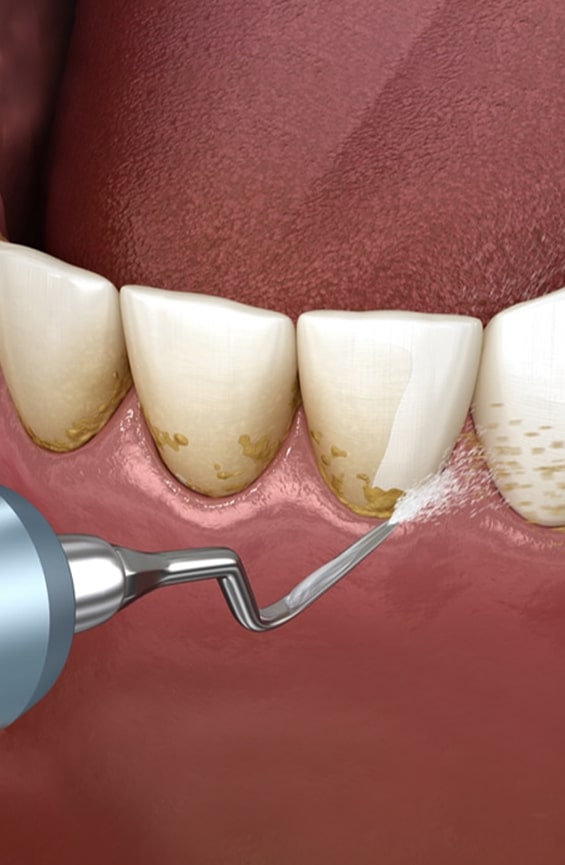
Understanding Scaling and Root Planing Treatment
Gingivitis is a generative disease that, if left untreated, causes significant tooth and gum deterioration. Just the word gingivitis can strike panic in a patient’s mind. The reality is that the treatment is simple and performed right in your trusted Toms River dentist’s office.
Plaque and tartar that sit on the teeth provide an environment that allows bacteria to thrive and multiply. The bacteria cause the gums to become inflamed and bleed. The condition becomes more noticeable when you brush your teeth or sometimes when you eat. These are signs of the early stage of gingivitis. Gingivitis is easily treated by having the hygienist scale and polish the teeth. If gingivitis is left untreated, the condition will progress, and the roots will need planning. The difference between scaling and root planning is simple. Scaling is the removal of the dental tartar from the tooth surface. Root planing is the process of smoothing the root surfaces and removing the infected tooth structure.
As a non-surgical procedure, scaling and planing are performed without any anesthesia in the dentist’s office. While the procedure is usually painless, advanced stages of gingivitis may make it necessary to numb the area for complete comfort. Deep scaling and root planing are usually broken down into one section of the mouth per appointment. This allows for adequate healing time and reduces the time for each appointment.
Contact us at North Dover Dental of Toms River; we offer comprehensive care and treatment for gingivitis and other dental conditions to ensure your oral health.





